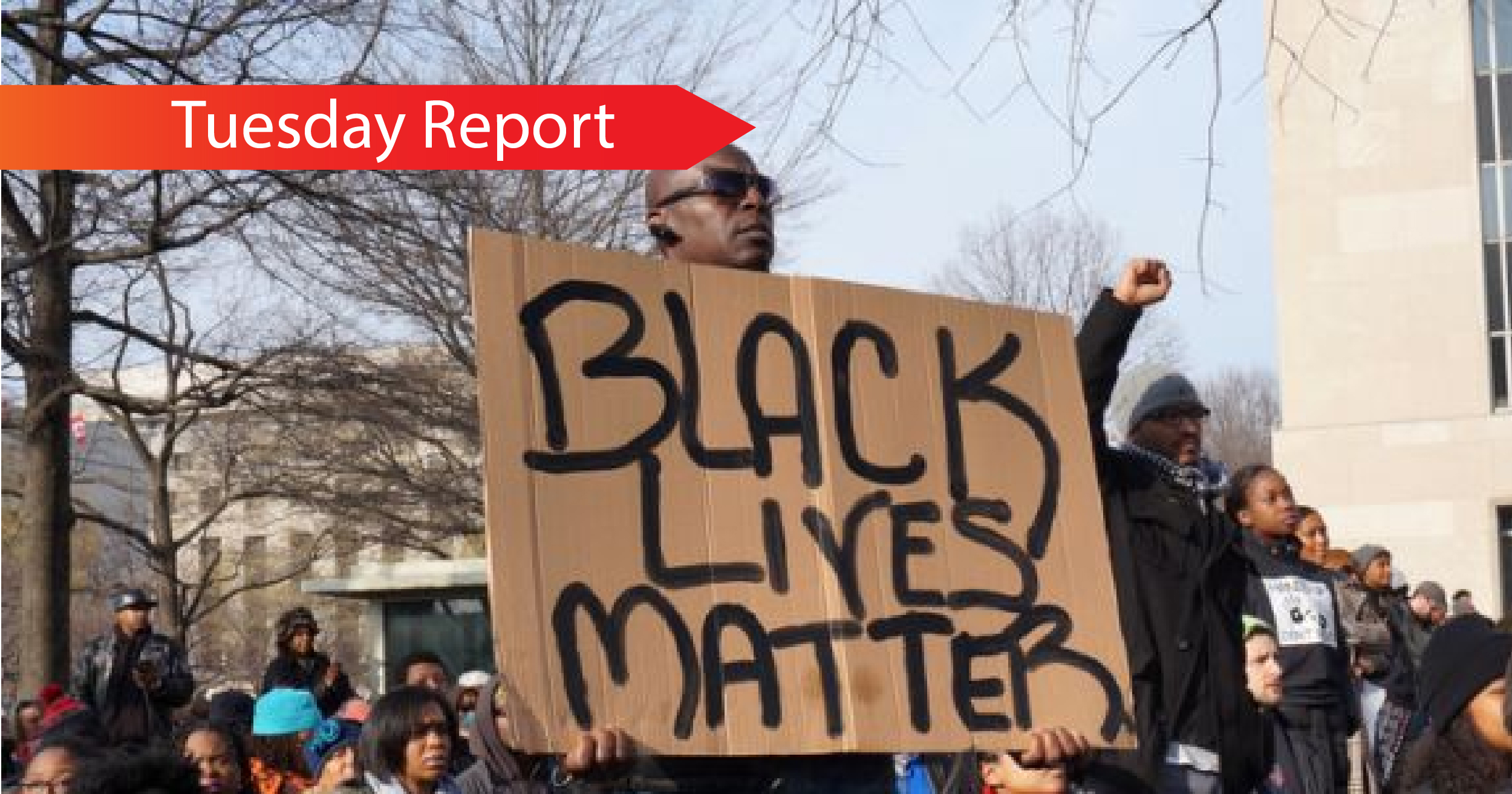“Black Lives Matter!” We see throngs of thousands of people in the middle of a global pandemic in every city who shout the truth from the housetops.
The murder of George Floyd over a 20 dollar bill, was for me the dramatic definition of “institutional racism.” I knew that if I had been in the same situation, as a white man, I would not have been murdered.
But what can I do now? The last thing we need is a predictable corporate statement. What is a true, effective reaction to a system that continues to result in repression, and not infrequently to murder at the hands of those called to protect?
I believe in the enforcement of the law. The fight to end systemic racism is not against police nor can it disrespect police–there would be no civilization without law enforcement. There are great police chiefs and police officers—and they should never be left out of the discussion. Their voice should be heard in any plan for reform.
It’s about achieving systemic social justice. I want to commit to being on the right side of history to end systemic racism. Each of us needs to decide and commit to what they’ll do now.
Beyond Fighting for Civil Rights–Combatting Systemic Racism
How is systemic racism different from the civil rights movement of the 1960s? I have always thought of myself as a fighter for civil rights. I thought I had made my contribution and that things were going pretty well.
I saw African Americans rising in the professions and becoming president of the US. I realized that there was continuing discrimination, but I thought everyone had an open path to succeed.
There had been so much progress. Or so I thought.
The town of my childhood, Tomball, Texas was truly like South Africa in the 1960s. Blacks and whites were not allowed to get into the same car together–water fountains were labeled “white” and “colored.” The outskirts where African Americans lived was squalid, sagging Hufsmith, its own small town ghetto with sad, inadequate schools.
In my childhood Christian Vacation Bible School class, they taught us to sing, “Jesus Loves the Little Children of the World,” and I looked around and saw the treatment of black people and felt sadness and rage.
So I early become active in the civil rights movement. I lived in Americus, Georgia at the signing of the Civil Rights Act and took difficult stands.
The Dream Come True Foundation–Where You Can Work to End “Systemic Racism“
Sixteen years ago, Carol Kallendorf, PhD and I started the Dream Come True Foundation as a way to create a more level playing field. Most of our Dream Achievers are minorities, black and brown, who were locked in dynamics of systemic racism. Carol is my partner in life and business. We knew the system was stacked against people who wanted to get out of poverty.
We set out to find high potential people in intergenerational poverty and take them to a high five figure income in 2 years. We do not see ourselves as a traditionl charity giving out stipends and scholarships. We become a community with the Dream Achievers, an equal partnership with them in solving issues and moving forward.
In order to achieve this, we had to address systemic racism in ways we never dreamed of. We had realized that getting people their civil rights is something very different from helping them achieve their dreams. We had always fought for racial equality, but now we began to work on systemic and institutional racism.
Heather Bailey, who is Dream Come True’s present chairperson, and Bob Riazzi, our Executive Director, and a dedicated board continue to work against systemic racism. Sam Myers, community leader and non-profit expert, is key to Dream Come True’s dedication to our Dream Achievers and organizational structure.
Here are a few areas of insidious, systemic racism that we learned about over the years:
- The Technology Divide. Carol and I began with one of our first Dream Come True families. We found them a place to live, a scholarship to a first class university, and we thought we were set to go. Late one night we get a call–“my children start to school tomorrow and we don’t have a computer in our house.” We found we had plenty of access to computers that people could renovate and give to us. We were now in the technology business.
- The Legal Gulf. A small example in the legal gulf that is huge to people who suffer systemic racism is traffic tickets. When a middle class person gets a traffic ticket for $200 it’s a real kick in the gut. For a black or brown person, a Dream Achiever we support, a $200 fine may mean that their children go hungry. An $8 parking ticket is a major setback. We have had our Dream Achievers go to jail because they could not pay a ticket that would only be an irritation for a middle class person.
- The Educational Gulf. We have clients and team members who are working from home and helping to educate their children online. They can put them into the other room, get them online on one of many computers in the house, connect them to Wi-Fi with plenty of bandwidth and close the door. In the homes of people of scarce resources, there is no other room–they must work on their education with a room full of others living there who rightfully are doing other things–which could be from conversations to video games. These children are losing a year of their lives.
Dream Come True has been working to end systemic racism for a long time by partnering with our Dream Achievers through education and mentoring. Contact us to join this part of the fight. “Black Lives Matter!”






